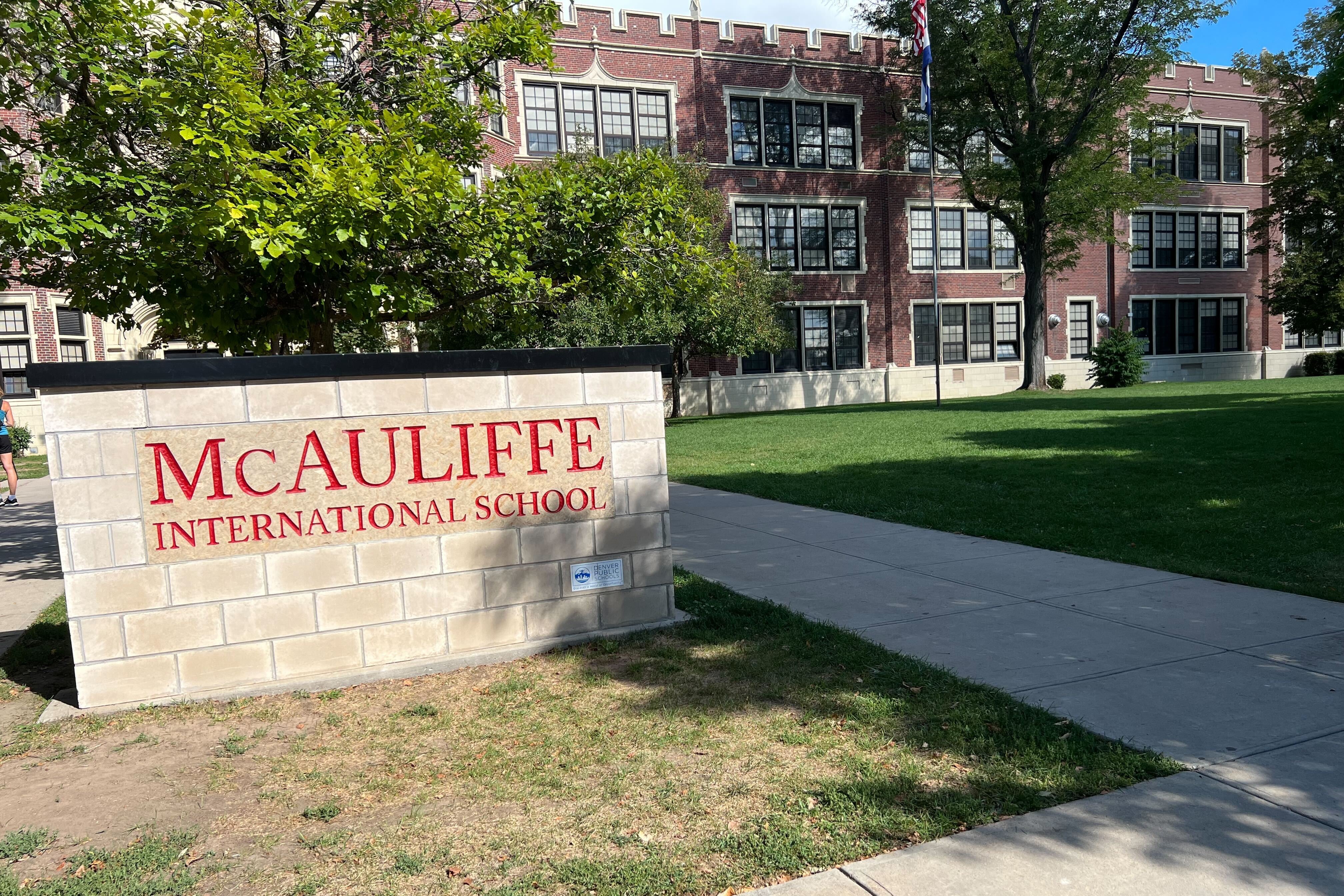Sign up for Chalkbeat Colorado’s free daily newsletter to keep up with education news in Denver and around the state.
A Denver Public Schools investigation found that former McAuliffe International School Principal Kurt Dennis placed students — or directed staff to place students — in two seclusion rooms last school year without proper supervision “and then either locked or held the door shut.”
That’s according to a three-page letter summarizing the findings that is addressed to Dennis and was provided to Chalkbeat by Dennis’ attorney, David Lane. The letter says that the facts support a finding that Dennis violated DPS’ seclusion policy.
The rooms were in use from Nov. 18 through the end of the school year, the letter says. The investigation found that McAuliffe staff continued “using these rooms for seclusion despite being aware that at least one of the rooms, which was damaged during the course of the school year, was not safe or appropriate for this purpose,” the letter says.
However, the letter says there was “insufficient evidence” to support an allegation that Dennis disproportionately placed students of color in the seclusion rooms.
Dennis was fired as principal of McAuliffe in July in the aftermath of a televised interview he gave to 9News in March expressing concerns about gun violence and student safety. The Denver school board voted last week to uphold Dennis’ firing. The allegations about the seclusion room came to light after the firing but before the vote.
DPS policy requires that “one or more staff members” accompany a student inside a seclusion room. In an interview Thursday, Lane said Dennis did not violate district policy because the policy doesn’t specify what to do if a student is acting violently toward the staff member in the room by hitting, kicking, and spitting at them, which he said was happening at McAuliffe.
“There was no policy on what to do in those circumstances, so there was no policy violation,” Lane said.
Dennis and Lane have denied that students were alone in the room because staff monitored them through a window in the door. Lane also disputes DPS’s numbers and verbiage. The letter implies four students were put in seclusion, while Lane claims it was two. The letter also mentions two seclusion rooms, but Lane said there was only one “de-escalation room.”
Lane said he plans to sue DPS on Dennis’ behalf in federal court next week.
Colorado law allows schools to seclude a student alone inside a room with the door closed as long as the student is monitored through a window or by video camera. In the wake of the McAuliffe allegations, state Rep. Regina English, a Colorado Springs Democrat, said she wants to ban the use of seclusion rooms statewide. English made the announcement at a press conference in Denver earlier this month alongside three Denver school board members.
The issue is already on lawmakers’ radar. A 2020 Chalkbeat investigation uncovered weak state oversight of seclusion, and in 2022, lawmakers passed new limits and reporting requirements for both seclusion and restraint, which means forcibly restricting a student’s movement.
DPS policy has long gone a step further than state law. DPS calls its practice of requiring a staff member to be in the room “monitored seclusion” or “modified seclusion.” In the 2018-19 school year, the district reported 111 instances of modified seclusion, according to a review written by DPS staff and obtained by Chalkbeat through an open records request.
Updated numbers for the 2022-23 school year were not immediately available Thursday.
Some of Colorado’s other large school districts reported even more incidents of seclusion in 2018-19, according to reviews written by those districts. Young students with disabilities were disproportionately subjected to seclusion, according to the reviews.
The state education department can investigate the misuse of seclusion. In 2020, for example, the department found that a rural school district violated state law when it secluded a kindergartner in a small booth in the nurse’s office normally used for hearing tests.
The kindergartner had wet his pants, refused to change his clothes, and kicked and hit two staff members, according to the findings. The department found that secluding him in the booth was a violation for several reasons, including that the seclusion was used as a “punitive form of discipline” and that the booth did not have adequate ventilation or was not big enough.
The Colorado Department of Education is now investigating the use of seclusion at McAuliffe, according to a department spokesperson. But the DPS investigation is complete.
DPS interviewed three students and 24 witnesses as part of its investigation, according to the letter summarizing the findings. Dennis declined to speak to investigators, who instead used public statements made by him or his attorney. Dennis told the Denver Post earlier this month that he had a lock put on the door of a seclusion room that was later removed.
Denver school board Vice President Auon’tai Anderson said at a press conference Thursday that the full 33-page investigation report, which was provided to board members but has not been made public, contains “stories that have kept me up this past week.”
“To the students who may have suffered, my heart aches for the pain you have endured,” Anderson said. “Saying ‘I’m sorry’ hardly feels adequate.”
DPS denied an open records request by Chalkbeat for a copy of the 33-page report, arguing that it was a privileged document. Lane said neither he nor Dennis has seen the 33-page report.
Melanie Asmar is a senior reporter for Chalkbeat Colorado, covering Denver Public Schools. Contact Melanie at masmar@chalkbeat.org.





